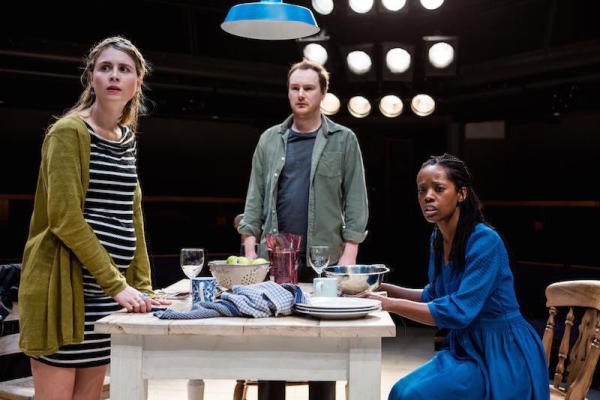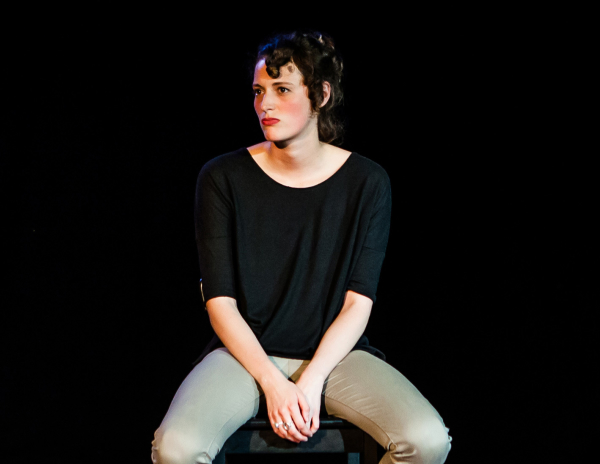Little Light (Orange Tree)

© Richard Davenport
Theatre can mess with history. Alice Birch‘s fourth full-length play was actually her first. She started it at university and now here it is, the past in the present. Revisiting Little Light, she says in the programme, felt like "talking to a version of yourself from six years ago."
It’s a play full of former selves: a dinner party dictated by history. Alison and her husband Teddy are hosting her heavily pregnant sister Clarissa at their remote, weather-beaten seaside cottage, as they do every year. Only this time, she’s bought Simon, her new, older boyfriend, apparently uninvited and certainly uninitiated in the traditions that dictate proceedings. There’s an unspoken ritual at play. The other three clink glasses and swap seats unprompted. They drink the same wine they always drink and tell the same stories they always tell.
There’s a Butterworthian tang to all this: the remote rural location and arcane ceremonials take on an edge of menace. Gradually, it becomes apparent that Clarissa is being punished: that the hairball Simon coughs up was meant for her and the peas in the pudding weren’t there by chance. "Had you forgotten what today is?" Alison chides. Beneath the surface, there’s a secret history and, as in Enda Walsh‘s work, we’re watching a ritual that’s evolved out of some past trauma or old score. The annual dinner serves as both repentance and recompense – but for what?
Two things are different this year. Clarissa has bought Simon along, while Teddy, currently renovating the house and desperate to let in more light, has deliberately deviated from the usual menu, cooking fish pie, not lamb. Both of them clearly want to move on – yet neither feels it’s entirely their place. It’s Alison’s hurt, so it’s Alison’s call.
When the full story emerges, that hurt pours out of the play like pus. Birch keeps her secrets until they absolutely have to burst out. There’s a contrivance in that – a storyteller racking up the suspense – which undercuts the play’s emotional release, though others were left sobbing by the end of David Mercatali’s tense production. The dialogue can seem over-stewed: insistently poetic, rather than accidentally so.
What Birch does brilliantly, though, is unpick the sibling relationship and its basis in a shared history. While Yolanda Kettle‘s deferent Clarissa can reinvent herself with her new partner, telling her story anew and so starting from scratch, Alison and, to a lesser extent Teddy, won’t let her do so. They know all there is to know about her and they either can’t or they won’t let her forget. None of them can move on; not Lorna Brown‘s hard, disconsolate Alison, nor Paul Rattray‘s washed-out Teddy, torn between the desire to forgive and his inability to do so.
Without forgiveness, the love that was there turns sour, until comfort food and childhood memories leave a bitter taste in the mouth. History, it seems, can mess with people.
Little Light runs at the Orange Tree until 7 March. Click here for more information and to book tickets.












